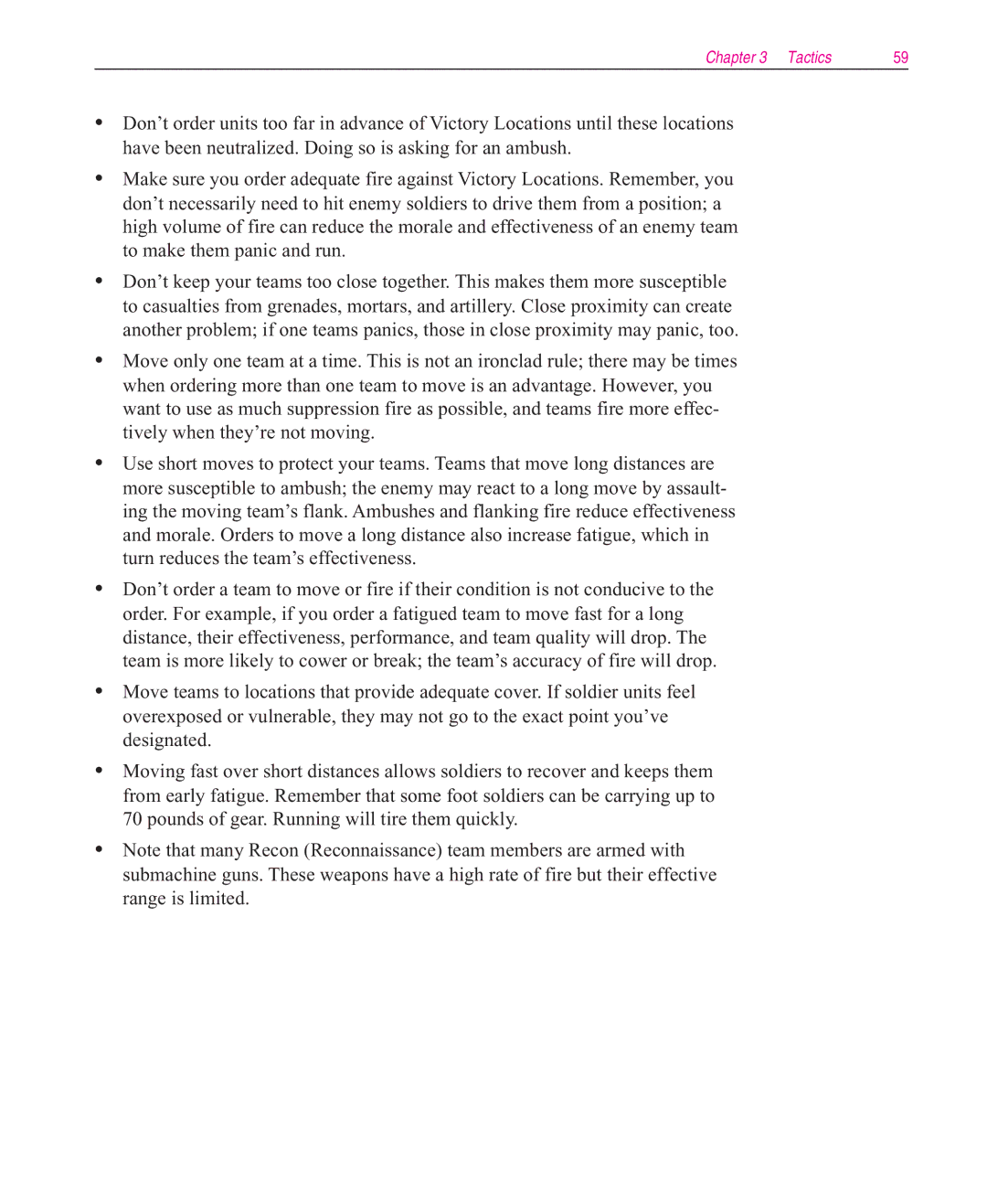Chapter 3 Tactics | 59 |
•Don’t order units too far in advance of Victory Locations until these locations have been neutralized. Doing so is asking for an ambush.
•Make sure you order adequate fire against Victory Locations. Remember, you don’t necessarily need to hit enemy soldiers to drive them from a position; a high volume of fire can reduce the morale and effectiveness of an enemy team to make them panic and run.
•Don’t keep your teams too close together. This makes them more susceptible to casualties from grenades, mortars, and artillery. Close proximity can create another problem; if one teams panics, those in close proximity may panic, too.
•Move only one team at a time. This is not an ironclad rule; there may be times when ordering more than one team to move is an advantage. However, you want to use as much suppression fire as possible, and teams fire more effec- tively when they’re not moving.
•Use short moves to protect your teams. Teams that move long distances are more susceptible to ambush; the enemy may react to a long move by assault- ing the moving team’s flank. Ambushes and flanking fire reduce effectiveness and morale. Orders to move a long distance also increase fatigue, which in turn reduces the team’s effectiveness.
•Don’t order a team to move or fire if their condition is not conducive to the order. For example, if you order a fatigued team to move fast for a long distance, their effectiveness, performance, and team quality will drop. The team is more likely to cower or break; the team’s accuracy of fire will drop.
•Move teams to locations that provide adequate cover. If soldier units feel overexposed or vulnerable, they may not go to the exact point you’ve designated.
•Moving fast over short distances allows soldiers to recover and keeps them from early fatigue. Remember that some foot soldiers can be carrying up to 70 pounds of gear. Running will tire them quickly.
•Note that many Recon (Reconnaissance) team members are armed with submachine guns. These weapons have a high rate of fire but their effective range is limited.
